Glan Clwyd Hospital trials new app for physio patients
- Published
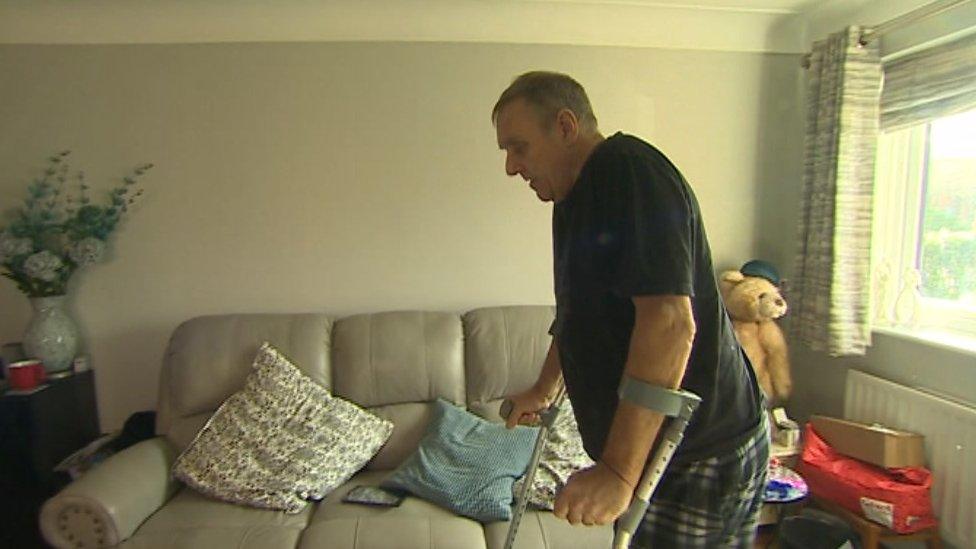
Nigel Ede has been putting the new app through its paces after recovering from knee surgery
A computer app could transform the treatment of patients recovering from knee and hip replacement surgery, doctors have said.
The new technology is being used as part of a pilot project at Glan Clwyd Hospital in Denbighshire.
It can see how much movement a patient has and whether physiotherapy exercises are being done properly.
And it is hoped the remote-access device, which costs about £100, will reduce waiting lists and save money.
Patient and doctor can also communicate via an instant messaging system, and a built-in "pain scale" allows the patient to report how much discomfort they are in.
The as-yet-unnamed app uses the patient's data to suggest physiotherapy routines, demonstrate how to do exercises, and it allows them to do a physio course at home.
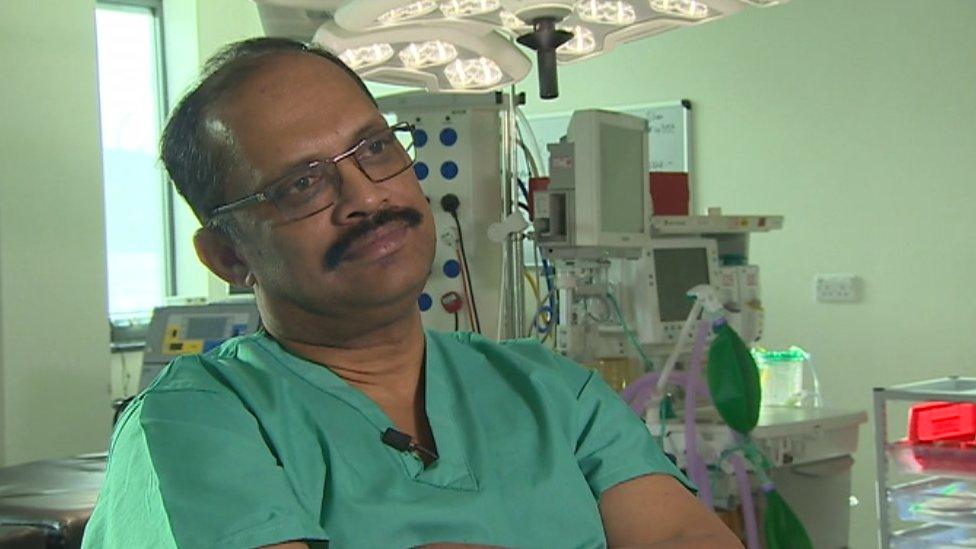
Consultant orthopaedic surgeon Balasundaram Ramesh said the app could take pressure off the NHS
Consultant orthopaedic surgeon Balasundaram Ramesh said the tablet and tracking device cost less than £100.
In comparison, he said, a patient staying in hospital for several days and requiring multiple physio appointments cost about £1,700.
"It could be a way of taking pressure away from the NHS and it could also have a massive impact on the physiotherapy demands as well," he added.
"I'm a single surgeon who's interested in it. I need to motivate and encourage others to do it and I need to have colleagues joining with me to take the responsibility to learn the techniques."
Dr Ramesh has been trialling the device on patient Nigel Ede, from Rhyl - who is the first person to test the device.
Mr Ede, 62, who had his right-knee replaced two weeks ago, said: "It tells me if I'm doing my physiotherapy correctly, it monitors all the movement of my leg. The technology is absolutely fantastic.
"You will always repair yourself better at home."

The pilot project is taking place at Ysbyty Glan Clwyd, Bodelwyddan
Betsi Cadwaladr University Health Board said while the scheme would not be suitable for everyone, the trial might help reduce a backlog of cases.
The board has more than 13,000 people needing an orthopaedic operation - with more than 3,000 waiting longer than the 36-week target.
Surgical manager Paul Andrew said: "This could well be the future of sustainable service delivery. We are improving patient experience, reducing the potential for hospital-acquired infections and allowing them to recover at home - thus freeing up beds.
"This would allow us to re-distribute the resource elsewhere to meet the targets.
"I believe if this project is successful that it will become more widespread, not just across knee surgery but certainly hip surgery and potentially across other specialities."
- Published1 May 2018
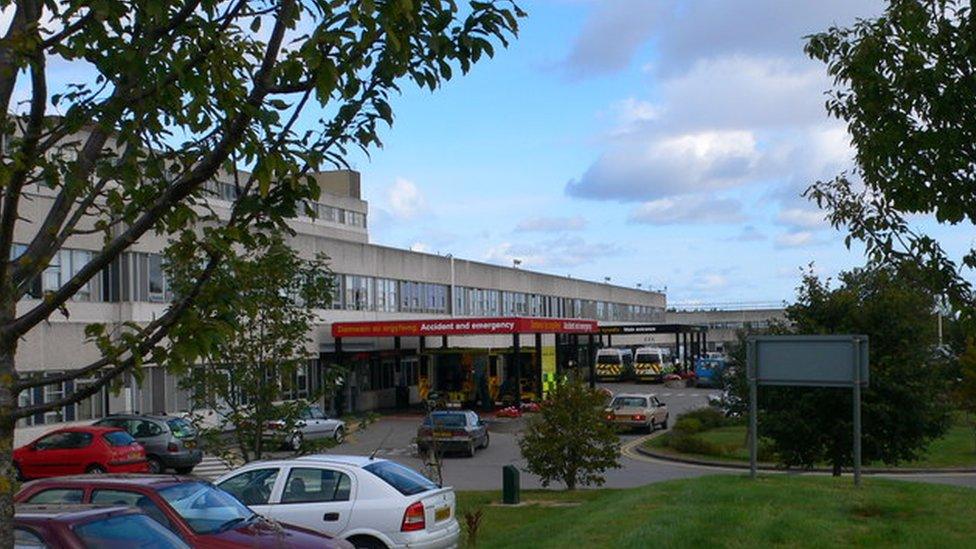
- Published1 February 2018
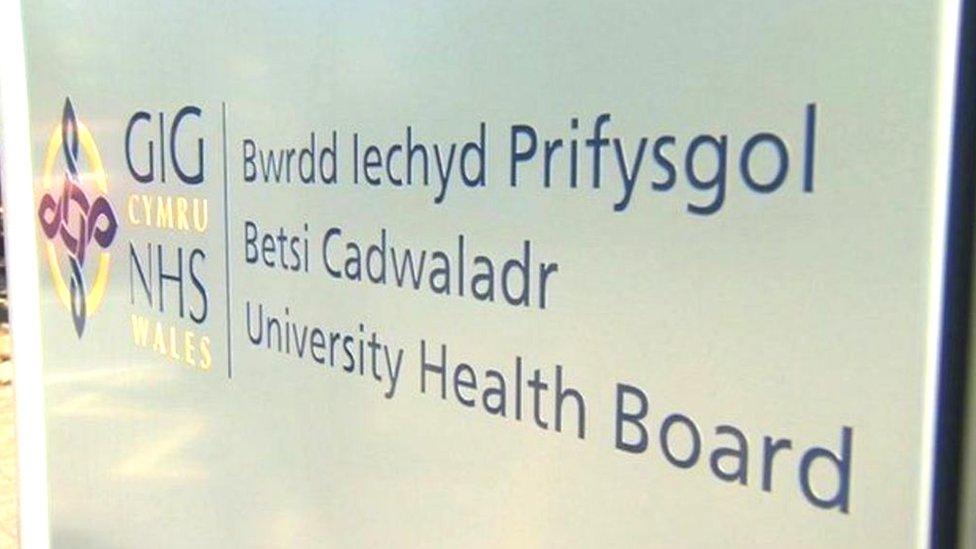
- Published4 December 2017
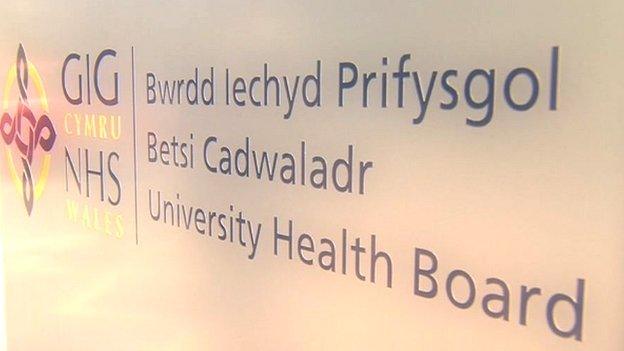
- Published17 July 2017
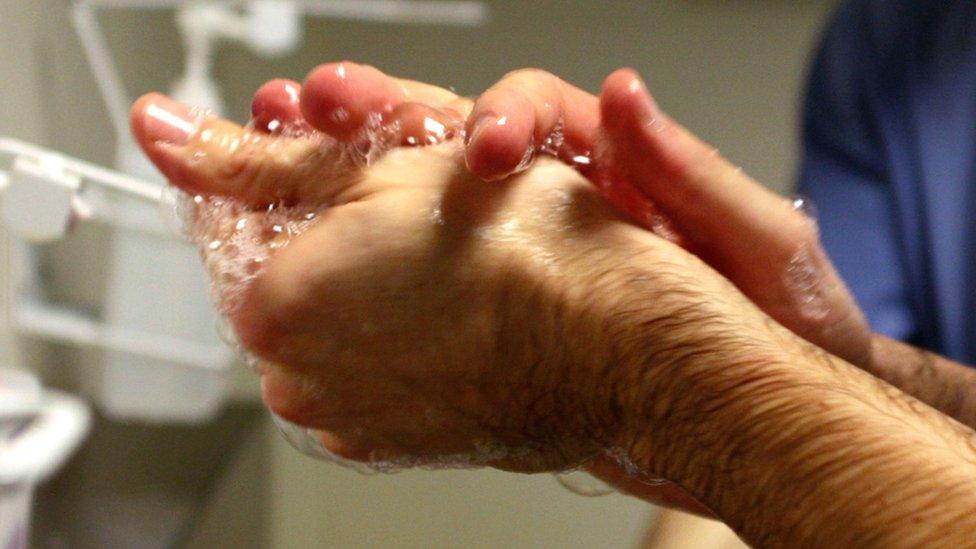
- Published20 September 2016
